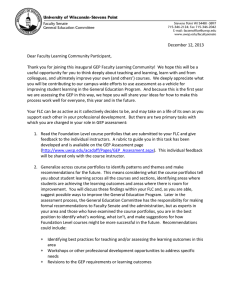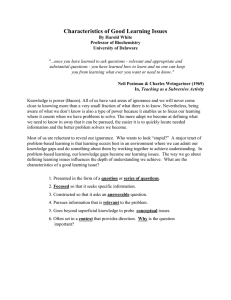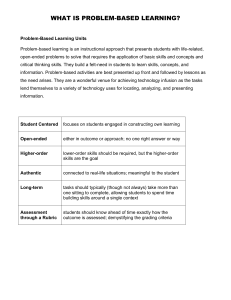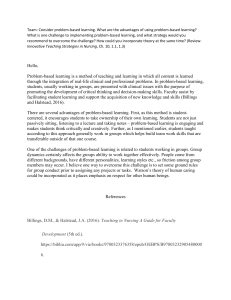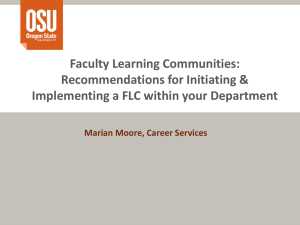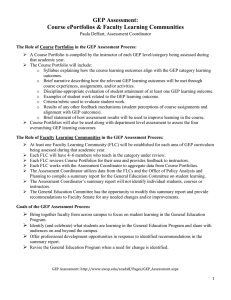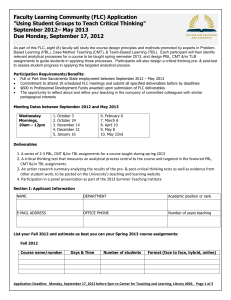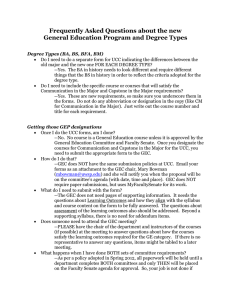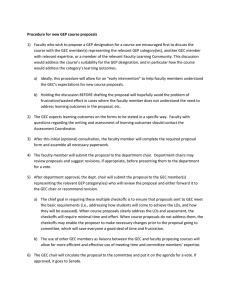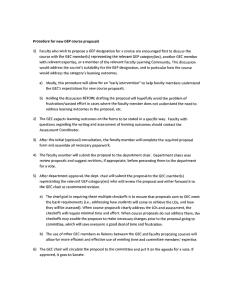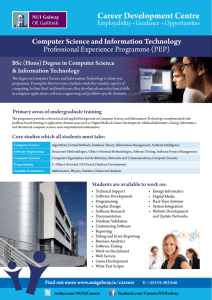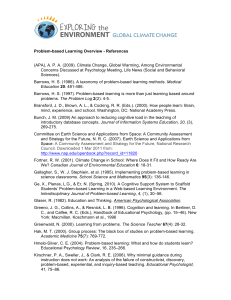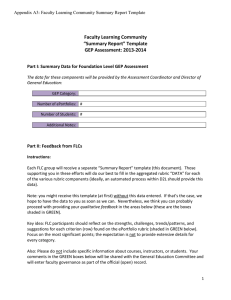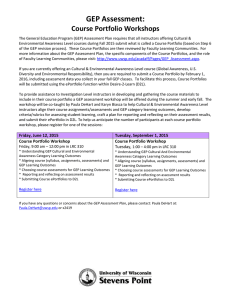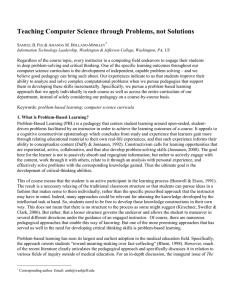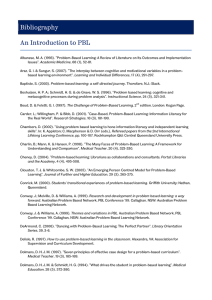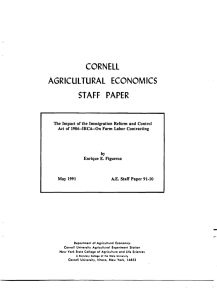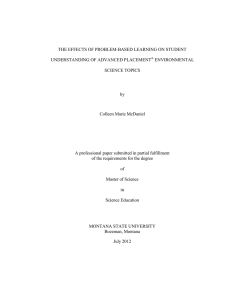Document 11766988
advertisement
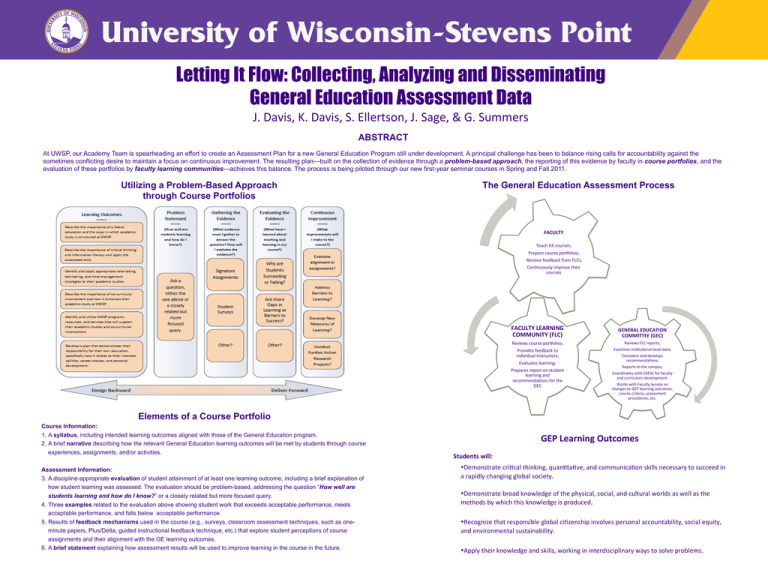
Letting It Flow: Collecting, Analyzing and Disseminating General Education Assessment Data J. Davis, K. Davis, S. Ellertson, J. Sage, & G. Summers ABSTRACT At UWSP, our Academy Team is spearheading an effort to create an Assessment Plan for a new General Education Program still under development. A principal challenge has been to balance rising calls for accountability against the sometimes conflicting desire to maintain a focus on continuous improvement. The resulting plan—built on the collection of evidence through a problem-based approach, the reporting of this evidence by faculty in course portfolios, and the evaluation of these portfolios by faculty learning communities—achieves this balance. The process is being piloted through our new first-year seminar courses in Spring and Fall 2011. Utilizing a Problem-Based Approach through Course Portfolios The General Education Assessment Process FACULTY Teach GE courses; Prepare course porNolios; Receive feedback from FLCs; Con9nuously improve their courses FACULTY LEARNING COMMUNITY (FLC) Reviews course porNolios; Provides feedback to individual instructors; Evaluates learning; Prepares report on student learning and recommenda9ons for the GEC GENERAL EDUCATION COMMITTEE (GEC) Reviews FLC reports; Examines ins9tu9onal-­‐level data; Considers and develops recommenda9ons; Reports to the campus; Coordinates with CAESE for faculty and curriculum development. Works with Faculty Senate on changes to GEP learning outcomes, course criteria, assessment procedures, etc. Elements of a Course Portfolio Course Information: 1. A syllabus, including intended learning outcomes aligned with those of the General Education program. 2. A brief narrative describing how the relevant General Education learning outcomes will be met by students through course experiences, assignments, and/or activities. Assessment Information: 3. A discipline-appropriate evaluation of student attainment of at least one learning outcome, including a brief explanation of how student learning was assessed. The evaluation should be problem-based, addressing the question “How well are students learning and how do I know?” or a closely related but more focused query. 4. Three examples related to the evaluation above showing student work that exceeds acceptable performance, meets acceptable performance, and falls below acceptable performance. 5. Results of feedback mechanisms used in the course (e.g., surveys, classroom assessment techniques, such as oneminute papers, Plus/Delta, guided instructional feedback technique, etc.) that explore student perceptions of course assignments and their alignment with the GE learning outcomes. 6. A brief statement explaining how assessment results will be used to improve learning in the course in the future. GEP Learning Outcomes Students will: • Demonstrate cri9cal thinking, quan9ta9ve, and communica9on skills necessary to succeed in a rapidly changing global society. • Demonstrate broad knowledge of the physical, social, and cultural worlds as well as the methods by which this knowledge is produced. • Recognize that responsible global ci9zenship involves personal accountability, social equity, and environmental sustainability. • Apply their knowledge and skills, working in interdisciplinary ways to solve problems.
